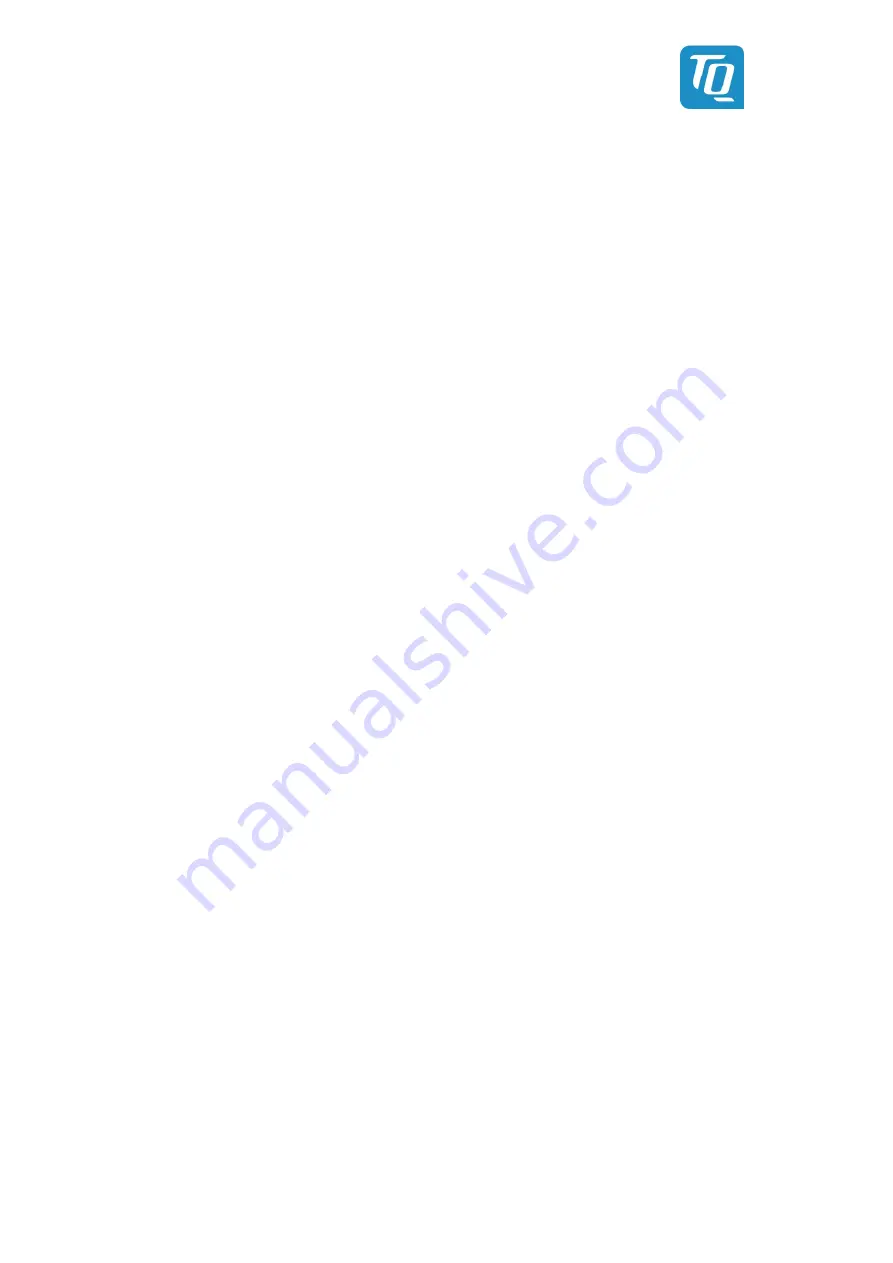
User's Manual l MBa8x UM 0100 l © 2021, TQ-Systems GmbH
Page 47
8.
ENVIRONMENT PROTECTION
8.1
RoHS
The MBa8x is manufactured RoHS compliant. All components, assemblies and soldering processes are RoHS compliant.
8.2
WEEE
®
The final distributor is responsible for compliance with the WEEE
®
regulation.
Within the scope of the technical possibilities, the MBa8x was designed to be recyclable and easy to repair.
8.3
REACH
®
The EU-chemical regulation 1907/2006 (REACH
®
regulation) stands for registration, evaluation, certification and restriction of substances SVHC
(Substances of very high concern, e.g., carcinogen, mutagen and/or persistent, bio accumulative and toxic). Within the scope of this juridical
liability, TQ-Systems GmbH meets the information duty within the supply chain with regard to the SVHC substances, insofar as suppliers inform
TQ-Systems GmbH accordingly.
8.4
EuP
The Ecodesign Directive, also Energy using Products (EuP) directive, is applicable to products for the end user with an annual quantity >200,000.
The MBa8x must therefore always be seen in conjunction with the complete device. The available standby and sleep modes of the components
on the MBa8x enable compliance with EuP requirements for the MBa8x.
8.5
Packaging
The MBa8x is delivered in reusable packaging.
8.6
Batteries
8.7
General notes
For technical reasons a battery is necessary for the MBa8x. Batteries containing mercury (Hg), cadmium (Cd) or lead (Pb) are not used.
If this is for technical reasons unavoidable, the device is marked with the corresponding hazard note.
To allow a separate disposal, batteries are generally only mounted in sockets,
except technical requirements such as vibration resistance require
direct soldering.
8.8
Lithium batteries
The requirements concerning special provision 188 of the ADR (section 3.3) are complied with for Lithium batteries.
There is therefore no classification as dangerous goods:
•
Basic lithium content per cell not more than 1 grams (except for lithium ion and lithium polymer cells for which a lithium content of not
more than 1.5 grams per cell applies (equals 5 Ah)).
•
Basic lithium content per battery not more than 2 grams
(except for lithium ion batteries for which a lithium content of not more than 8 grams per cell applies (equals 26 Ah)).
•
Lithium cells and batteries are examined according to UN document ST/SG/AC.10-1.
During transport a short circuit or discharging of the socketed lithium battery is prevented by extricable insulating foils or by other suitable
insulating measures.
8.9
Other entries
By environmentally friendly processes, production equipment and products, we contribute to the protection of our environment. To be able to
reuse the MBa8x, it is produced in such a way (a modular construction) that it can be easily repaired and disassembled. The energy consumption
of the MBa8x is minimised by suitable measures.
Because currently there is still no technical equivalent alternative for printed circuit boards with bromine-containing flame protection (FR-4
material), such printed circuit boards are still used. No use of PCB containing capacitors and transformers (polychlorinated biphenyls).
These points are an essential part of the following laws:
•
The law to encourage the circular flow economy and assurance of the environmentally
acceptable removal of waste as at 27.9.94
(Source of information: BGBl I 1994, 2705)
•
Regulation with respect to the utilization and proof removal as at 1.9.96
(Source of information: BGBl I 1996, 1382, (1997, 2860))
•
Regulation with respect to the avoidance and utilization of packaging waste as at 21.8.98
(Source of information: BGBl I 1998, 2379)
•
Regulation with respect to the European Waste Directory as at 1.12.01
(Source of information: BGBl I 2001, 3379)
This information is to be seen as notes. Tests or certifications were not carried out in this respect.




























